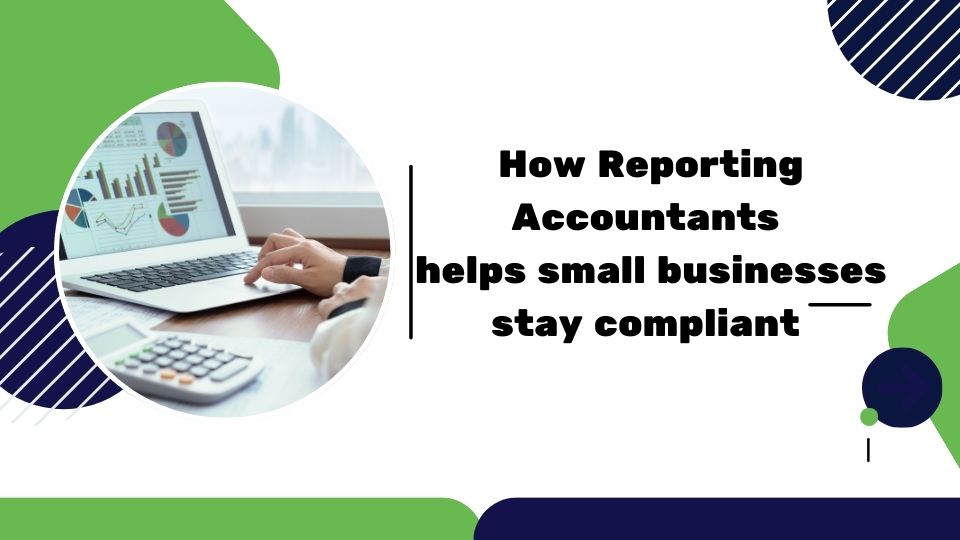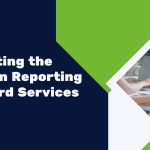How Reporting Accountants Help Small Businesses Stay Compliant
For small business owners, the idea of staying compliant with ever-changing regulations can be daunting. The legal landscape is intricate, filled with tax laws, record-keeping requirements, and compliance obligations that can leave even the most organized entrepreneurs overwhelmed. This is where reporting accountants come in. More than just number crunchers, these financial experts provide a vital service that keeps small businesses compliant while paving the way for business growth. Their role is to ensure that small businesses adhere to the legal frameworks set by tax authorities and regulatory bodies, freeing up valuable time for owners to focus on their core operations.

One of the key benefits of hiring reporting accountants is their expertise in record keeping. Accurate record keeping is the backbone of compliance; without it, even the best-intentioned businesses can face penalties or missed deadlines. Reporting accountants help small businesses maintain clean, organized financial records, ensuring that every expense, transaction, and revenue source is properly documented. This means when tax season rolls around, or if the business is subject to an audit, everything is in order. A real-world example is when a small retail business faced an audit from tax authorities. Thanks to their reporting accountant’s meticulous record keeping, they were able to provide every document required, avoiding potential penalties and gaining peace of mind.
Beyond record keeping, reporting accountants are strategic partners in financial planning. They don’t just help businesses meet compliance requirements; they provide valuable insights into the company’s financial health, guiding decision-making processes. For instance, a reporting accountant can analyze trends in expenses and revenues to help small business owners identify opportunities for cost savings or potential risks. This kind of analysis not only ensures compliance but also supports long-term business growth by highlighting areas where adjustments can make the business more profitable. An accountant might discover, for example, that a small business is eligible for specific tax deductions or credits that the owner wasn’t aware of, directly impacting the bottom line.
Moreover, reporting accountants stay updated on the latest regulatory changes, taking a proactive approach to compliance. This is especially important for small businesses, which may not have the resources to monitor changes in tax laws or industry-specific regulations themselves. When new laws are introduced, such as changes to VAT rates or new requirements for financial disclosures, reporting accountants can swiftly adjust a small business’s compliance strategy, ensuring they are always aligned with current standards. A common scenario is when governments introduce new incentives or reliefs aimed at small businesses. Without a reporting accountant, many owners may miss out on these benefits simply because they are unaware of them.
Another crucial role of reporting accountants is in helping small businesses prepare accurate and timely financial reports. These reports are not only important for internal decision-making but are often required by external stakeholders such as banks, investors, and regulatory bodies. Accurate financial reporting builds trust with stakeholders, which is essential for business growth. Imagine a small business looking to secure a loan to expand operations. The bank will want to see a clear picture of the business’s financial health, and a well-prepared financial report can make all the difference. Here, a reporting accountant’s expertise ensures that the reports are accurate, compliant with financial standards, and present a true reflection of the company’s performance.
The role of reporting accountants extends to helping businesses navigate complex tax filings. For many small business owners, filing taxes is a dreaded task, filled with potential pitfalls that could lead to errors or missed opportunities for deductions. Reporting accountants bring their deep understanding of tax laws to the table, ensuring that every eligible deduction is claimed and that filings are completed accurately and on time. This not only keeps businesses compliant but can also result in significant savings. For instance, a small business owner in the hospitality industry might not be aware that certain operational costs, like equipment upgrades or training expenses, are tax-deductible. A reporting accountant can ensure these deductions are included, reducing the overall tax liability and saving money.
Moreover, reporting accountants act as advisors who can help small business owners understand the implications of their financial decisions. For example, if a small business is considering expanding to a new location, a reporting accountant can provide insights into how this move will impact cash flow, tax obligations, and overall financial health. This allows business owners to make informed decisions, knowing that they have a clear picture of the financial impact. By making well-informed choices, small businesses are less likely to encounter unexpected costs or compliance issues down the line. This kind of forward-thinking advice is crucial for maintaining stability and fostering sustainable business growth.
In addition to tax filings and financial advice, reporting accountants play a critical role during audits. While the word “audit” can strike fear into the hearts of many small business owners, those who work with reporting accountants can face the process with confidence. Reporting accountants help businesses prepare for audits by ensuring that all financial statements, records, and reports are accurate and up-to-date. They also represent businesses during audits, communicating with auditors and clarifying any questions that arise. This representation can make the audit process smoother and less stressful for small business owners, allowing them to focus on running their business rather than getting bogged down in financial paperwork.
The peace of mind that comes with knowing a business is fully compliant cannot be understated. Non-compliance can result in heavy fines, reputational damage, and even legal issues that can threaten the very existence of a small business. By working with reporting accountants, small business owners can rest assured that they are on the right side of the law. This allows them to concentrate on what they do best—serving their customers and growing their business. A prime example is a small tech startup that, thanks to its reporting accountant, avoided a significant fine by staying compliant with new data protection regulations, which the business owners were initially unaware of.

Ultimately, reporting accountants are not just service providers; they are partners in a small business’s journey towards growth and success. Their expertise in record keeping, financial planning, and compliance management makes them an invaluable asset to any business looking to thrive in a competitive market. As small businesses continue to navigate the challenges of regulatory requirements, having a reporting accountant by their side can make all the difference. By keeping a business compliant, they pave the way for long-term stability and growth, ensuring that the business’s financial foundation is solid and ready for whatever the future holds.
In today’s business environment, the ability to stay compliant while maintaining a focus on growth is more important than ever. Small business owners who invest in the services of reporting accountants are making a smart choice—not just for today, but for the future of their business. With the right reporting accountant, small businesses can navigate the complexities of compliance, leverage strategic financial planning, and ultimately achieve sustainable growth











